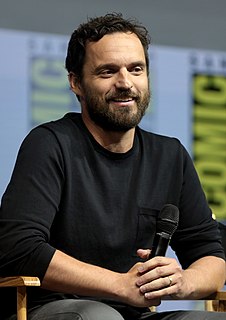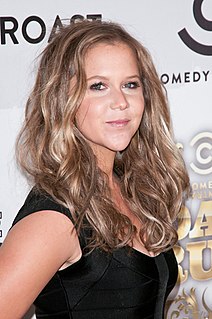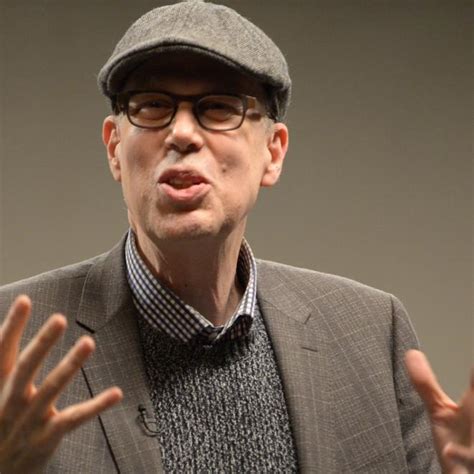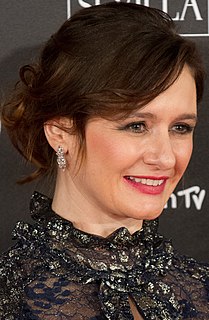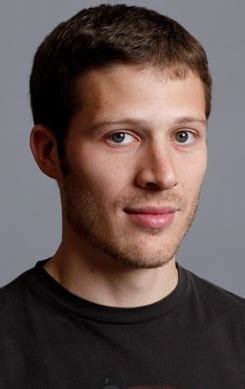A Quote by Sarah Gadon
You often have a great director who's like, "Well, actually I don't even want to reveal you until the end of this scene" or something like that and it totally changes everything that you thought it was going to be.
Related Quotes
If I'm not directing it, I need to be right in the director's ear so we can be talking about this." You do something like use the wrong music, the tone's off, and everything feels off". And I was like, "I'm not going down with this one. I wrote it, but I don't like that play." Then I thought, "Well, no one's producing my stuff, letting me star in it, and direct it at these theaters, so I'll just do them in comedy clubs."
Out of nowhere she tells me that Oliver Stone - you know, the director - she's like, 'He has this huge Asian fetish, and I find it totally offensive.' And I'm like, 'Why, Kwan? That sounds awesome.' She's like, 'I'm offended because I'm Asian.' And I was just like, 'Well, I'm sorry, but I didn't even notice that. I thought you were just really tired.
I have often thought of doing a story with someone either as a human being or as a robot who, by a series of stages, changes into the other end of the spectrum. By the story's end, he'd be either totally robotic or totally human, the opposite of what he once was. And possibly... bring him back again.
A good or great performance is like peeling an onion; in every scene you reveal another layer, something the audience hasn't seen until then. They stay involved because they are constantly learning about and discovering the character they are watching. They can't take you for granted and it keeps them hooked.
I find that I end up liking songs if I really have an idea of something I wat to write about-some problem in my life or something I want to work through; if I don't have something like that at the root of the song, then I think I end up not caring about it as much. I gravitate towards some kind of concept or idea or situation that I want to write about. Very often I have to write, rewrite and come at it from an opposite angle...and I end up writing the opposite song that I thought I was going to write.
You never in a million years thought that you would ever end up in a Woody Allen film even though that might be your dream, and there you are. Suddenly you've got one. But you're not playing the quintessential Woody Allen heroine, which is somebody that's full of self-doubt and heartbreakingly naïve. Chloe in Match Point was a nightmare in some ways and totally entitled, and felt like everything was going to be all right. Most of the women in Woody Allen films feel like everything's awful. I didn't understand what to do. But some of the confusion is helpful.
Every once in awhile, Allison Abbate would drop a note and say, "It's going really well!," and I was like, "Great!" So, I had not seen it in about two years. They went off and started shooting, and I saw it all put together with almost the final sound mix and it was remarkable. I was so, so happy and relieved, not in the sense that I thought something had gone wrong, but you just don't know what something is going to be like until you see it put together. Everyone stepped up and brought their A+ game.
The best directing style is the one that lets me do whatever I want. Seriously though, I like to be challenged and I like to collaborate. I love finding the medium between what I think and what a director does. I hate when a director uses the "my way or the highway" approach. But it also sucks when they tell you everything you do is great and offer no input. It's a fine line a director has to walk. It is a hard job.
I've always used masks. I think it's a lot about the fact that masks often reveal a sort of subconscious element to a character. The mask is carved and given an expression or markings to reveal something, even though it's shielding the face. Even though it's hiding the face, it seems to reveal something underneath.
I never hit a shot, not even in practice, without having a very sharp, in-focus picture of it in my head. It's like a color movie. First I 'see' where I want it to finish, nice and white and sitting up high on the bright green grass. Then the scene quickly changes and I 'see' the ball going there: its path, trajectory, and shape, even its behavior on landing. Then there is this sort of fadeout, and the next scene shows me making the kind of swing that will turn the previous images to reality.




